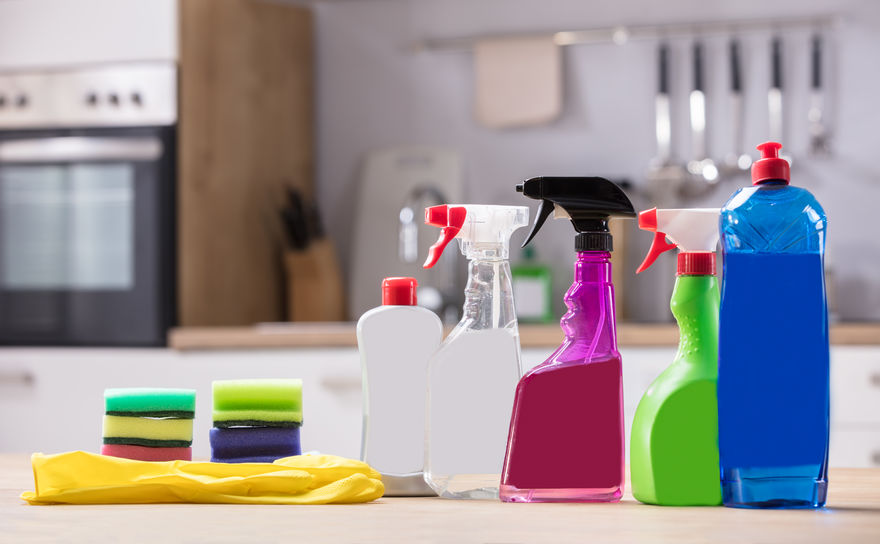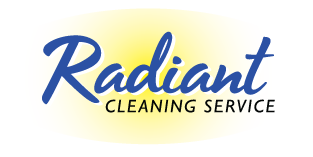Definition of Disinfecting
Disinfecting destroys microscopic organisms (germs, fungi, viruses) on different surfaces. Disinfection is achieved by using EPA-approved chemicals that kill the organisms as well as prevent them from spreading. Items may be disinfected using UV-C germicidal short wavelength, ultraviolet light that breaks apart the DNA of bacteria and germs leaving them unable to harm and reproduce. This’s the same UV-C light technology used in hospital surgical suites to help in killing superbugs. (Though the CDC cautions that UV-C light’s efficacy against coronavirus isn’t known, so make sure to confirmed chemicals.) Disinfecting doesn’t essentially eliminate visible dirt and debris from a surface and is much more efficient if basic cleaning is done first.

Disinfecting your Home
It’s essential to properly clean as well as disinfect the surfaces in our homes. Germs, known as microorganisms can make us sick. They live on various surfaces and can contaminate food, utensils as well as other objects that we use to prepare and eat our food with. Cleanliness in the kitchen starts before you begin to prepare food. Anything that can contact your food or hands must be cleaned. This involves dishes, pots and pans, cutlery, faucets, utensils, countertops, cutting boards, and kitchen cloths, may opener blades, and refrigerator handles. Harmful bacteria that are not visible will thrive and grow in food that will be prepared by unclean hands in an unclean kitchen so, before preparing food, get off to a clean start.
Top Reasons to Disinfect Your Home
Now that you have an idea of the disinfecting, let us now put our attention to the perks of getting your house disinfected, which is what this article is primarily all about. Disinfecting your home may be done with the use of a variety of products, some of which are available at supermarkets and hardware stores. They range anywhere from white vinegar, soap, hydrogen peroxide, rubbing alcohol to bleach. Different factors will determine which one you will use. For example, it’s fine to clean your skin with soap, but it is a terrible idea to clean it with bleach. Before you use a product for disinfecting purposes, carefully read the packaging first. See the usage directions and then follow them all carefully. Do not forget to take a look at the precautions to avoid unnecessary issues from showing up.
Below are some benefits of disinfecting your home.
Lowered stress levels
Now a day, almost no one is safe from viruses or germs that can wreak havoc on health and cause death. One example is the coronavirus that’s keeping everybody all over the planet fearing for their lives. By having your home disinfected, it’s less probable for the coronavirus as well as other harmful microbes to thrive in your abode and threaten your health and the health of your loved ones.
Reduced health care prices
Seeking medical help does not come with a cheap cost tag particularly today. Hence, staying on top of health matters a lot. As they say, prevention is good than an ounce of cure. Disinfecting your home are preventive measures that are so efficient to lower the risk of a health issue from showing up, ranging from food poisoning to the flu.
Decreased allergy flare-ups
It is a better idea to regularly disinfect your home if you have allergies as well as someone you love has them. That’ll help deal with common allergens found in the house like pet dander, dust mites, mold, and mildew. Regularly cleaning carpets, upholsteries, curtains, drapes, as well as others where allergens can collect is highly suggested to considerably decrease the risk of flare-ups.
Reduced respiratory problems
As we all know that mold and mildew are most instances of allergens found in the house. It is important to get rid of them even if no one in the family suffers from allergies. That is because they may cause irritation of the airways. Mold or mildew are bad for our respiratory system. The dangers of them being around become more evident if somebody in the family is suffering from asthma and bronchitis mold and mildew may aggravate a respiratory problem.
Improved home odor
You do not have to see mold and mildew with your own eyes to know that they’re in your home. Some of the time, smelling them is more than sufficient to make their presence known. By disinfecting, your home may smell cleaner and fresher. Inviting guests over require not to cause embarrassment on your part as well as an annoyance on their part. Particularly during spring cleaning, disinfecting is an essential step to take to get rid of mold and mildew.
Removed excess weight
There are a couple of reasons why disinfecting your house regularly can help you slim down. 1st, it may help keep you from stressing over many health concerns. We all know that stress eating can simply lead to weight gain. 2nd, the act of keeping your home sparkling clean helps burn many excess calories. In other words, it’s the best form of exercise that’s good not for your figure but home.
Disinfection: Why is it necessary?
When water with the best quality is needed, like household water, drinking water, and livestock watering, disinfection is a very important barrier. Disinfection kills disease-causing organisms. Disinfection is the last barrier in municipal water treatment. Continual water testing is essential to make sure the disinfection procedure is working effectively.
Pathogenic organisms cause disease. Some common pathogenic organisms in water are:
viruses: A virus maybe 0.05 to 0.1 micrometers
bacteria: A Bacterium maybe 1 micrometer
protozoan parasites, such as Giardia (6 to 12 micrometers) and Cryptosporidium (2 to 5 micrometers)
The hair of humans contains a diameter of 60 micrometers. It is visible to the naked eye. These organisms are small enough to simply pass through some water treatment systems. Hence, disinfection is so essential.
Which surfaces should I focus on?
The surfaces you should clean and disinfect in your house are ones that are touched various times on an everyday basis and are situated in common areas. These surfaces include:
- Countertops
- Tables
- Chairs with backs
- Sinks
- Toilets
- Doorknobs
- Phones
- Desks
- Handles
- Tablets
- Light switches
- Touch screens
- Remote controls
- Keyboards
